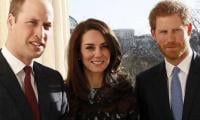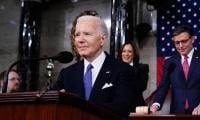PESHAWAR: Whether it is the confusion between the provincial Health Department and Khyber Pakhtunkhwa Healthcare Commission over the proposed recruitment by the latter or the deliberate attempt by certain individuals, the commission has been unable to play its role in regulating healthcare establishments in the public and private sectors.
A recent notification by the KP Health Department was surprising as it attempted to stop the KP Healthcare Commission KP HCC) from hiring staff, arguing that the department had already banned recruitment in all the health-related institutions. The HCC had already suffered due to lack of ownership on the part of the government and the recent attempt by certain individuals to make it dysfunctional. The HCC recently advertised 27 different positions, including managers, deputy directors, inspectors, senior inspectors, drivers and other support staff. It was for the first time that the commission advertised these positions after its inception in 2015.
The previous Pakistan Tehreek-e-Insaf (PTI) government had introduced two important laws in 2015 – the KP Medical Teaching Institution Reforms Act 2015 and KP Healthcare Commission Act 2015. The government mostly focused on MTI Act and health institutions and gave them billions of rupees funds. It enabled the MTIs to recruit hundreds of staff by paying heavy stipends, but constantly ignored HCC and its needs. According to members of the Board of Governors (BoG) of HCC and sources in the Health Department, 29 positions were first advertised in September 2016 and only five people were hired including the chief executive officer, two directors and two additional directors.
One director, Dr Khalid Masud later quit when he was offered job of Hospital Director in LRH. “There is not a single staff in the HR and licensing and registration sections of the commission,” said an official. Nobody was hired for the remaining positions due to lack of funds, the official told The News. Later, the remaining positions were advertised in 2018, but then came the caretaker government and the Election Commission of Pakistan banned recruitment. After the election, the HHC had to function without a BoG for around seven months. In February 2019, the incumbent PTI government appointed a new BoG for the commission.
The BoG endorsed decision of the previous board and approved advertising the remaining positions so the commission can overcome staff shortage and regulate public and private medical sectors in other districts. According to the BoG members, they were stunned after receiving a letter from the Health Department, preventing them from hiring staff. The reason given in the letter was that the government had banned recruitment in health related institutions. Sources in the Health Department told The News that the issue was not that much simple, saying some influential people wanted the HCC to blindly accommodate their people even if they don’t meet the criteria, which he said wasn’t possible in the present circumstances.
Also, officials in the Health Department shared some of the letters which were sent to the HCC, saying that legally the Healthcare Commission was an autonomous body and they can’t stop it from its routine work. He said some powerful people initially attempted to get rid of the HCC Chief Executive Officer Azar Sardar so they can use the body for personal gains like the previous Health Regulatory Authority (HRA). When they failed, they started a campaign to stop it from hiring staff. Some PTI circles had raised questions when Health Minister Dr Hisham Inamullah had appointed five of his relatives and friends as non-official BoG member at that time.
When reached, Health Minister Dr Hisham Inamullah didn’t attend phone call but replied to the text message of this correspondent the next day. And he said: “yes we did and sent a letter to HCC directing them that before hiring they should have taken permission from the health department by requesting a relaxation of the ban as there was a ban on all recruitments in Health Sector. According to law, they are bound to do that.” At that time, Dr Hisham Inamullah said he never used his office for his personal interests. He had confirmed to The News that BoG member Dr Sanaullah was his relative. About another member, Dr Imran, the minister said he was his class fellow. However, Secretary Health Dr Farooq Jamil, when reached, denied the reports of having stopped the HCC from hiring. “There could be some sort of miscommunication but obviously HCC is an autonomous body run under a BoG and the department cannot stop it from hiring or any other legal activity,” said the secretary health.
Asked about the letters, obtained by this correspondent, sent to HCC, Dr Farooq Jamil said he would resolve the issue with chief executive and other staff of the commission amicably. “But since they (HCC) have a mandate of regulating the public and private sectors, therefore, it’s our joint responsibility and we would assist them,” said Dr Farooq Jamil. Interestingly, despite so-called ban of the health department on recruitment, all other autonomous health institutions had recruited employees and advertised positions.
When contacted, HCC Chief Executive Azar Sardar, a former PAF officer, said they had good working relations with the government, saying whatever they were doing is for the betterment of the people. “Very soon we would have our trained people in each and every district. After Pata, we are now planning to set up our offices in the erstwhile Fata,” he added. Since its establishment, HCC is being run by a four-member administrative set up from the head office in Peshawar. A well-organised and authorised watchdog like HCC doesn’t suit thousands of unregistered health establishments and quacks in the private sector. No sincere effort has been made in the past to regulate health sector and prevent spread of diseases through quacks, particularly in the remote districts.
The previous government had committed to give Rs102million to the HCC annually till the commission is enabled to generate its revenue, but it didn’t fulfill its commitment and only 50 percent of the funds were provided last year.
It had been regulating the whole province with 11 inspectors and 27 other field staff. The HCC had set up zonal offices in Peshawar, Bannu and Abbottabad and became the first government department to establish its offices in Malakand and Swat districts soon after merger of the Provincially Administered Tribal Areas (Pata) with KP. However, the commission has to regulate hundreds of health establishments, public and private sector, of six districts, including Swat, Buner, Shangla, Upper Dir, Lower Dir and Chitral with the help of two inspectors only.
In this image, people enjoy the view at a tourist destination. — APP/FilePESHAWAR: Thousands of tourists suffered in...
An eye-catching view of blooming flowers at Company Bagh Park ahead of Eid Mela, the image was released on April 10,...
Commuters face difficulties in transportation due to stagnant rainwater in Peshawar on April 15, 2024. —...
Pakistan Muslim League-Nawaz leader Captain Mohammad Safdar addresses a gathering of party supporters in Mansehra on...
A representational image of a police tape. — AFP/FileGHALLANAI: A fourteen-year-old boy was killed in a blast in Dab...
A representational image of a person shooting. — Pexels/FileMINGORA: A man shot dead his wife along with her alleged...







